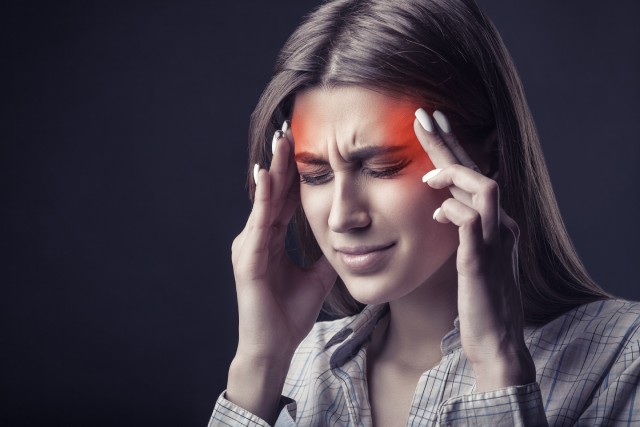Are you plagued by debilitating migraines? It may seem like nothing you try ever helps. But we’re here to let you know that you may not have tried everything.
There are several medications, home remedies, and preventative measures for migraines that you might not know about. In the following guide, we describe many different techniques and remedies to alleviate your unbearable migraine symptoms. We also show you some ways you could use to prevent your migraines in the first place.
You don’t have to let crippling migraines get the best of you anymore. Read this guide to discover a plethora of options for managing your migraines.
1. Figure Out What Triggers Your Debilitating Migraines
It’s not fully understood why migraines happen. But we do know of some common factors that are present as triggers in many migraine cases.
Therefore, the first thing you can do is to try and figure out what triggers your debilitating migraines. Below are some common migraine triggers to watch out for. The next time you get a migraine, write down any of these triggers that could possibly have caused it.
Hormonal Changes
Naturally-occurring hormonal changes, such as those during pregnancy, menopause, and menstrual periods, are known migraine triggers. Also, estrogen fluctuations caused by certain medications can trigger migraines, too.
Stress
Migraines are one of the many symptoms caused by an increase in stress. Take note of any stressors that tend to precede your migraines.
Overexertion
Pushing your body too hard can trigger migraines. This includes hard physical labor, exercise, even sexual activity.
Intense Sensory Stimuli
Bright/flashing lights, loud/repetitive noises, and certain smells are common migraine triggers. Some of the most common are sun glare, hammering or other construction noises, perfume, spraypaint or other chemicals, and cigarette smoke.
Inadequate Sleep
Not getting enough quality sleep could be causing your migraines. Obviously, this includes insomnia and other sleep conditions.
But an irregular sleep cycle is also a factor. If you go to bed and wake up at different times every day, it lowers the quality of sleep you get. So does jetlag from traveling to a different time zone.
Weather Changes
Many who get migraines say that changes in weather, temperature, or barometric pressure almost always precede their migraines. However, this phenomenon is still being researched and many studies have produced conflicting results.
Consumables
Too much caffeine/alcohol or certain medications can trigger a migraine. On the other hand, reducing your dosage of any of these may trigger migraines, too.
Food triggers include aged foods, like wine or cheese, and very salty or processed foods. Certain food additives can be triggers as well, including MSG and aspartame.
Lastly, your migraine could be one of the many symptoms caused by dehydration.
2. Avoiding Your Triggers
Hopefully, you can use the list above to learn which triggers are usually present before your migraines start. Here are a few ways to avoid these triggers.
First, always drink plenty of water. If your pee is bright yellow, it means you’re not getting enough water. It should be pale yellow or clear.
Also, stick to a regular sleep schedule if you can. If your job prevents this because of irregular work hours, it could be worth it to change jobs.
Abstain from foods, drinks, overexertion, and sensory stimuli triggers. If you suspect that a certain medication is your trigger, talk to your doctor about an alternative.
Learn relaxation techniques to relieve excess stress. As for weather triggers, try some of the preventative/symptom-management techniques below when the bad weather rolls in.
3. Natural Remedies
When the migraine hits you, your two greatest allies are quiet and darkness. Remove yourself from other people and stimuli and retreat to a dark, quiet room. Silence your phone and anything else that might disturb you before the migraine is over.
Applying a cold pack or mask to the pain might also help. And, since you can’t do much else, anyway, try to sleep if you can.
Certain supplements may also help prevent/alieviate the symptoms of a migraine, including coenzyme q10, vitamin B-2 (riboflavin), and magnesium. Unfortunately, though, there is no clinical proof as to the effects of these supplements. Still, taking multivitamins every day to get your daily value certainly won’t hurt.
Regular exercise also boosts your health in general. Thus, it might possibly prevent whatever physiological factors are causing your migraines.
Some have found that acupuncture is helpful for relieving their bad migraine symptoms.
4. Medication For Symptoms
If you choose to take medication for the symptoms, don’t hesitate. You’ll get the best results if you take them at the first sign of an oncoming migraine. Over-the-counter pain relievers like ibuprofen and aspirin can help.
Be careful of medications that include caffeine. They do help some people with migraine symptoms. But if caffeine is your trigger, it might make symptoms worse.
Your doctor could also prescribe medications for you, including:
- Triptans
- Opioids
- Other oral pills or nasal sprays
New medications for migraines are developed somewhat often. And the results of any treatment on this list vary greatly between individuals. So, talk to your doctor so you can start finding out which treatments work best for you.
5. Preventative Medications
Some patients find that certain medications effectively prevent their migraines. These include:
- Medication to reduce blood pressure
- Botox injections
- Anti-seizure medication
- Certain antidepressants
There’s also a recently-developed migraine treatment known as calcitonin gene-related peptide (CGRP) monoclonal antibodies. This treatment is administered via a monthly injection.
Manage Your Migraines With These Options
With the treatment methods described above, you can reduce the symptoms and occurrences of debilitating migraines. So, make sure you don’t lose this guide.
Bookmark this page or print it. Use it to find out what’s triggering your migraines. And take it with you for reference when you discuss treatment options with your doctor.
We have plenty more treatment advice where this came from. Now, read Simple Ways to Treat Frequent Nosebleeds.

